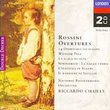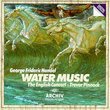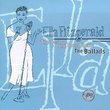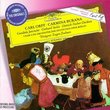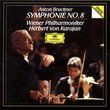| All Artists: Sergey Prokofiev, Maurice Ravel, Claudio Abbado, Berlin Philharmonic Orchestra, Martha Argerich Title: Prokofiev, Ravel: Piano Concertos, etc / Martha Argerich Members Wishing: 1 Total Copies: 0 Label: Deutsche Grammophon Release Date: 5/14/1996 Genre: Classical Styles: Forms & Genres, Concertos Number of Discs: 1 SwapaCD Credits: 1 UPC: 028944743821 |
Search - Sergey Prokofiev, Maurice Ravel, Claudio Abbado :: Prokofiev, Ravel: Piano Concertos, etc / Martha Argerich
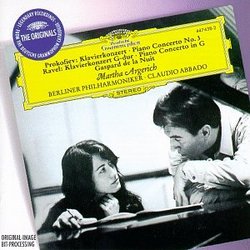 | Sergey Prokofiev, Maurice Ravel, Claudio Abbado Prokofiev, Ravel: Piano Concertos, etc / Martha Argerich Genre: Classical
No Description Available No Track Information Available Media Type: CD Artist: PROKOFIEV/RAVEL Title: CON PNO 3/CON PNO Street Release Date: 05/14/1996 |
Larger Image |
CD DetailsSynopsis
Product Description No Description Available No Track Information Available Media Type: CD Artist: PROKOFIEV/RAVEL Title: CON PNO 3/CON PNO Street Release Date: 05/14/1996 Similar CDsSimilarly Requested CDs
|
CD ReviewsBreathtaking! P. Rah | Sion, Switzerland | 04/25/2001 (5 out of 5 stars) "In my opinion, this is THE Prokofiev 3rd Concerto to have. It is simply wildly breathtaking. Argerich does not use her formidable technique to show off what she has, but rather to benefit the music as a whole. The rhythmic drive is so intense that the orchestra - this is the Berlin Phil we are talking about here - have difficulty in keeping up with her. But nonetheless, they do a super job in accompanying her. She makes the piano sing, playing notes as if she was singing. The sheer energy of this pianist is amazing. In her debut recording for EMI, she was said to have taken several cups of black coffee before entering the studio to record. Perhaps she did the same thing for this recording? Anyway, the way she interacts with the orchestra is most uncanny. Great performers have the ability to listen to others, but Argerich has the ability to almost accompany the orchestra (!) when necessary. The piece sounds as a whole, not as individual movements, in my opinion, which is great: that way it fully keeps the listener's attention. She lets rip in the last movement and the result is unbelievably improvisatory, but she maintains tension and control in the movement, and indeed the whole concerto. I think tension is one of the main keys to playing this concerto well. Otherwise it sounds technical, not musical. The Prokofiev ends spectacularly. Then comes the Ravel concerto in G. It is very jazzy, and Argerich's version has rarely been surpassed. I think that has a lot to do with her improvisatory approach to music. Someone commented that she is a true improvisor, in the tradition of Liszt, but unlike her predecessor, she never tampers with the notes itself. Here, that improvisatory approach really works, and it never for a moment sounded dull or repetetive. Abbado seems in full agreement with Argerich and it is another successful recording. After the wonderful concerti, the Gaspard de la nuit. It is a notoriously difficult piece, but Argerich makes it sound dead easy, as usual. She is said to have learned the piece in less than five days when her one-time teacher Friedrich Gulda, told her to master the piece in five days. She says that it was easy because she didn't know it was supposed to be difficult! Well, that certainly comes across, and she gives a very pictorial account of the work that borders on the frightening. The remastering is first-class. It has clarity and fullness compared with previous remastering, although in the Prokofiev the sound was a little opaque, due to the orchestral detail, which makes the orchestra sound a little compressed. But it is a small matter, as this is a disc that has few equals or competitors, and I doubt it will ever have serious competition with future versions. Stunning." Kudos, with reservations... I Hate Amazon | 01/14/2000 (5 out of 5 stars) "It seems that Argerich is one of those talents that compiles zealously devoted fans who fawn over everything she does, and in fact that kind of devotion is well-earned from a musician of her stature. Indeed the playing here is of a jaw-dropping intensity and brilliance. The Ravel bounces along at a brisk pace, with a nice sense of urban hustle and bustle that's almost Gershwin-esque, and the slow movement in particular is splendidly articulated. The Gaspard de la Nuit is an ethereal dream, and Argerich somehow conjures some uncannily wispy tones from the piano that belie the percussion of the mechanism, all without muddying up the legato (even the author of the liner notes is perplexed by the technique).But...I have to admit, I'm not a fan of this performance of the Prokofiev. For me, the piece is highly structured and should be played with a strict sense of rhythmic architecture, but Argerich in her frenzy tends to let the rhythm get away from her at times, and the result is a concerto that, to my ear, doesn't work as an organic whole--especially since the orchestra can't always keep up with her. Still I'm giving this CD five stars, because the other performances are absolutely top-notch." Ahh... Come On, Now...! D. J. Zabriskie | Park Ridge, NJ USA | 05/29/2004 (5 out of 5 stars) "I cannot believe that David White and the so-called "music fan" are listening to the same CD the rest of us are! This recording
is what made a Martha Argerich fan out of me. Her playing throughout this collection is just spell-binding and thoroughly amazing. Argerich has recorded the Prokofiev 3rd twice already, and a third recording is reported to be ready for release. Each of them are as different from the others as can be. The later one, with Charles Dutoit and the Montreal Symphony, is both more austere and more poetic than this one, but here we have the young Argerich, full of the fire, brio and self-confident daring and risk-taking which made her reputation. Few other pianists would attempt to take the outer movements of the Prokofiev at the tempoes Argerich does here (FAST!). To say that she pulls it off with abandon is an understatement! The slow interior movement is as thoughtful and beautiful as anything you will find in Prokofiev, with notes falling from suspension like drops of water off icicles in the first thaw after a long winter. The way Martha turns on a dime, from peaceful contemplation to firey agitation is something to behold. She is so good, it's almost silly! As for the Ravel pieces, both solo and with orchestra, Argerich's affinity for Ravel's music and her ability to communicate its profound, yet subtle, emotional content is unsurpassed. Nobody plays Ravel's piano music better than Martha Argerich. They can only play it differently. If you are already an Argerich fan, why isn't this CD in your collection? If you have yet to discover her artistry, this CD makes an excellent place to start. Welcome to a larger universe!" |

 Track Listings (9) - Disc #1
Track Listings (9) - Disc #1
